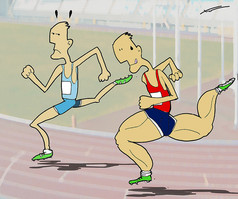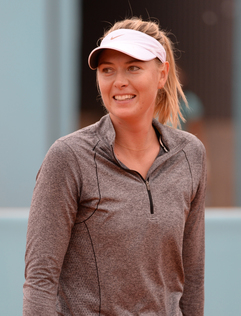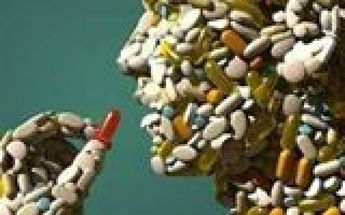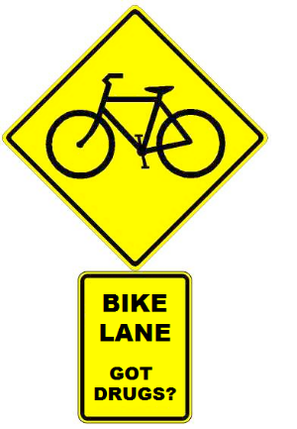 There’s an old saying that “Cheaters never prosper”, but in modern athletics it seems laughable. The World Anti Doping Agency(WADA) has announced that 23 more tests for performing enhancing substances have proved positive. Samples are kept for ten years, so as methods improve, retesting may show that medal winners cheated. One of the named cheaters is Russian athlete Anna Chicherova. She won bronze in the Beijing Olympics and went on to garner gold in the 2012 London meet. While she may be forced to return her medals, she will have elbowed out of the spotlight the true, clean athletes who competed against her. High profile Russian tennis player Maria Sharapova has been suspended from the International Tennis Federation for doping. A drug available in eastern Europe, meldonium, has been banned. It increases blood flow and was developed for short term use in people with circulation problems. She has admitted using the substance for years, including after it was banned. It’s ok though. This very successful professional tennis star may be banned from the professional competitions, but she has already been named to the Russian Olympic tennis team. WADA does not have the authority to immediately ban athletes. The International Olympic Committee could ban athletes immediately but does not appear to be planning to do so. A former employee of the Russian drug testing facility has testified about state sponsored cheating. Kenya has been named as non-compliant in ensuring clean athletes. They have been given six months to comply. Of course the summer Olympics will be over for another four years and those clean athletes will have been cheated by the dopers. There used to be speculation about some of the eastern bloc women competing internationally but little actual drug testing was done before the early ‘60s. Since then, the IOC has stripped 67 medals from competitors. Some like superstar Marion Jones held three gold medals and two bronze from the 1992 Olympics. She competed for the USA. Note: An "Open letter to World Health Organisation re Olympics and Zika virus" has been dismissed. Saturday BBC News reports - Zika crisis: WHO rejects 'move Rio Olympics' call. Sources: CBC News The Guardian Wikipedia
0 Comments
 Did she or didn't she? Did she or didn't she? It seems that some top athletes will cheat to maintain their careers and to stay in the lime light. Recently a new performance enhancing drug has been added to the long list of banned substances. It is a Latvian prescription only drug used to treat heart problems. The drug, meldonium, has proved useful for heat patients to help increase ability to exercise. It is usually prescribed for a course of six weeks. The World Anti-Doping Agency(WADA) warned athletes of the ban effective January 1 of this year. Elite athletes, whether professional or amateur, are responsible for ensuring that they are ‘clean’ when they compete. The drug burst into the public consciousness when top seeded tennis player Maria Sharipova tested positive for the banned substance in early March. Many more athletes have also tested for the banned substance, many from Russia and eastern European countries. The count is currently up to 100 positive tests. Russia is currently under scrutiny for its doping of athletes. It is alleged that the doping is state sponsored. WADA is debating whether to ban all the Russian athletes from the upcoming 2016 Olympic Games in Brazil. Strange things have happened since the scandal broke in Russia. The head of the lab in charge of testing athletes for banned substances met an early death. His successor quickly followed when he suffered what was an apparent heart attack after an afternoon of cross country skiing. The lab has had its certification suspended due to irregularities. The Russian sports minister assured the public in an interview that he was confident than no Russians were taking the banned substance. Shortly afterwards it was announced that four more athletes had tested positive. August is coming up quickly for these athletes. Some may have openly consumed the drug before the ban and are slow to eliminate it from their bodies, but positive tests may keep them out of the Olympics. Sources: CBC News Wikipedia Fortune  It’s starting to look as if heading the Russian anti-doping agency, Rusada, is a very dangerous job. The man who headed the agency until his resignation in December 2015 is now dead of an apparent heart attack. Nikita Kamayev is reported to have been out cross-country skiing, returned home and complained of pain. He died. The spokesperson for Rusada said in a statement to the press that Kamayev had not been ill and had not complained about heart troubles. Kamayev resigned from his post late last year as scandal broke out around doping issues. The World Anti Doping Agency (WADA) alleged that widespread doping of Russian athletes was occurring. The IAAF subsequently suspended Russian athletes from international competition. Kamayev’s death follows closely upon that of Vyaacheslav Sinev who headed the Russian anti-doping agency prior to Kamayev. Sinev died on February 3, 2016. No cause of death has been reported. The damning WADA report accused Russian state sponsored and promoted the use of performance enhancing substances. They allege that bribes were paid and that a former head of the IAAF conspired with President Putin to improperly resolve doping issues. The IAAF has now published the names of Russian athletes who are banned from international competition. The list includes over 4000 names. Some medals won by fellow athletes as far back as 2001 are now tainted. This has put the participation of Russia’s athletes in the 2010 Olympics in jeopardy. Aside from the humiliation of accusations of state sponsored cheating, President Putin is likely to be reliving his disappointment in 1984 when he was set to compete in the Olympics in judo. It’s not just track and field athletes that are getting caught at cheating. The professional cycling world is constantly catching cheats. Tiny assist motors are one of the ways cheating may be happening. Doping of athletes is more commonplace. Russian cycling team Katusha has had a rider suspended for failing his drug test. Cheating is not limited to Russian athletes. Kenyan athletes are currently on a watch list. There are 18 suspended athletes at this time. Winners of international sports competitions can count on lucrative spin offs from their victories. Sources: The Guardian Tass Velo News  Who's cheating? Who's cheating? The World Anti-doping Agency(WADA) has been investigating allegations that the Russian sportsworld has entrenched and widespread cheating. The investigation began December 2014 and has prompted the organization to recommend that the International Association of Athletics Foundation impose sanctions on the Russian athletes as well as remove the accreditation of the Moscow based testing facility. In a media event, the chair of the independent commission to investigate persistent rumours of institutionalized doping, Dick Pound was quoted: It's pretty disturbing," Pound said. "It's worse than we thought." CBC Sports The commission has recommended that Russia be declared “non-compliant” with the current anti-doping rules. They particularly focussed on the track and field athletes and stated that they hoped that the doping could be cleaned up before the Rio Olympics in 2016. The comprehensive report touched on many aspects of sport in Russia. The following are a few of the pertinent points.
Many of us have witnessed the long standing investigation into doping allegations that swirled around cycling great Lance Armstrong. His performances in the Tour de France were truly amazing, but it turns out years later that he admitted to cheating. Other cycling stars have stated that during those ‘doping days’ that you couldn’t touch the podium without doping. Armstrong had his TDF wins expunged from the record books. It is shameful that those in charge of young athletes would expose them to life altering chemicals in the quest for a dubious national glory. The cheaters in turn rob the ‘clean’ athletes of their rightful recognition and while they are classed as amateurs, rob them of the lucrative contracts offered to gold medal winners. Sources: WADA The Guardian Wada Independent Commission Report Mayo Clinic
|
Barbara McPherson
Blogger, gardener, farmer. Working toward food security and a 30 foot
diet. Addicted to reading. Love this planet, especially my little corner
on Vancouver Island, Canada Archives
October 2016
Categories
All
|


